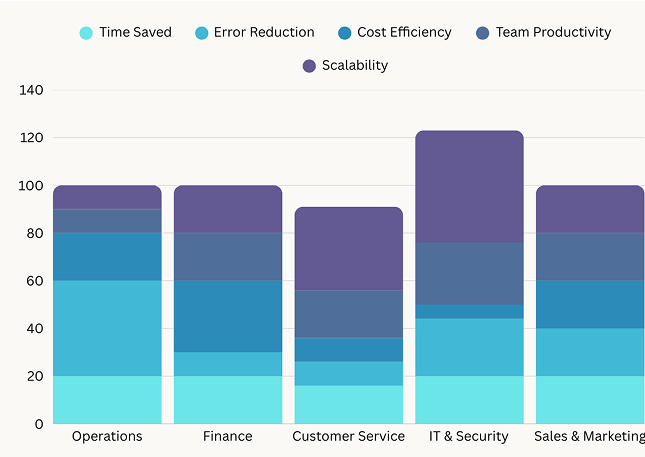
We use data to forecast trends and recommend the best next steps for your business goals.
We build systems that understand, interpret, and respond to human language with accuracy.
We create ML models that learn from your data to automate, optimize, and improve outcomes.
We design AI tools that can create text, images, and content tailored to your needs.
We bring AI directly to devices for faster, real-time decision-making without relying on cloud latency.
We develop chatbots and voice assistants that provide human-like interactions and instant responses.
We enable systems to recognize, process, and interpret visual data for automation and insights.
We combine AI and automation to handle complex, decision-based tasks at scale.
We train your teams and systems to use AI effectively and responsibly.
We help you identify, plan, and implement AI solutions that align with your long-term vision.
We build and manage AI platforms that ensure smooth model deployment and monitoring.
We ensure your AI solutions follow ethical guidelines and meet global compliance requirements.


AI services in India are driving the most impact in BFSI, Healthcare, IT, Retail, and Manufacturing, where automation, analytics, and personalization boost efficiency and growth. Sectors like Agriculture and Education are also rapidly adopting AI, offering high social impact through precision farming and personalized learning. Together, these industries showcase India’s strong potential for AI-led transformation.


AI development service costs vary by complexity—basic projects like chatbots can start at $10K–$25K, mid-level solutions (e.g. NLP, recognition systems) range $25K–$65K, while enterprise-grade AI platforms can exceed $100K. In India, AI developers typically charge $20–$80 per hour, making it a cost-efficient destination for high-quality AI solutions.


Generative AI refers to AI models that can create new content—text, images, code, audio, or designs—based on patterns learned from existing data. For enterprises, it helps by automating content creation, enhancing customer service with intelligent chatbots, speeding up product design and prototyping, enabling personalized marketing at scale, and supporting data-driven decision-making. This not only reduces costs but also boosts innovation and efficiency across business functions.


The time to build and deploy an AI solution depends on its complexity, data readiness, and scope. A basic AI app (like a chatbot or recommendation engine) can take 2–3 months, while mid-level projects (predictive analytics, NLP models) often need 4–6 months. For complex enterprise-grade AI systems with large datasets, integrations, and custom models, it may take 6–12+ months including testing and deployment.


Yes—conversational AI can be designed with multilingual support, allowing businesses to serve customers in multiple languages through chatbots, voice assistants, or customer service platforms. These solutions typically use Natural Language Processing (NLP) and translation models to understand, process, and respond accurately in different languages, enhancing customer experience, especially in diverse markets like India.


Artificial Intelligence (AI) is the broader field of creating machines that can simulate human intelligence—performing tasks like reasoning, decision-making, and problem-solving. Machine Learning (ML) is a subset of AI that focuses on training algorithms to learn patterns from data and improve performance over time without explicit programming. In short, AI is the overall concept of intelligent systems, while ML is one way to achieve it.


Avidus ensures data security in AI projects through end-to-end encryption, secure cloud infrastructure, and strict access controls. We comply with global and local regulations like GDPR, HIPAA, and India’s DPDP Act, backed by regular audits and monitoring. Our approach also embeds ethical AI practices to ensure transparency, fairness, and accountability.


Yes, AI can integrate seamlessly with existing ERP and CRM systems through APIs, custom connectors, or middleware. This allows enterprises to automate workflows, enhance customer insights, improve demand forecasting, and enable predictive analytics. By layering AI on top of ERP/CRM, businesses gain smarter decision-making, personalized customer engagement, and higher operational efficiency without replacing their current systems.

